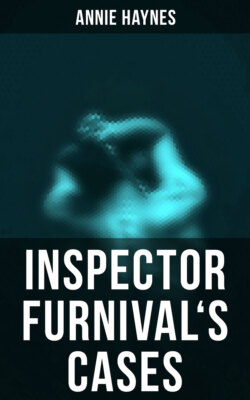Читать книгу Inspector Furnival's Cases - Annie Haynes - Страница 16
На сайте Литреса книга снята с продажи.
Chapter XIII
ОглавлениеTable of Contents
The Wembley Horticultural Show, and the athletic sports, which were held together in the Wembley People's Park, was a very great event to the country folk around Wembley. It would be a particularly brilliant function this year in the estimation of the country people, since not only was Lady Carew to distribute the prizes to the successful competitors, but of course the new Lord Chesterham would be there in attendance on his fiancée, Miss Peggy Carew.
Sir Anthony Carew, in his position as Peggy's guardian, had insisted that there should be no recognized engagement, no talk of a wedding for at least a year. He had declared that Peggy was too young to know her own mind, that the year would give her breathing space, and also allow them an opportunity of knowing something of Lord Chesterham, who was at present practically a stranger to them all. That Peggy, as well as her mother and her lover, thought this absolutely unreasonable, went without saying.
The morning of the Wembley Show dawned fine and clear; as the day wore on, it became almost oppressively sultry; Sir Anthony and Lady Carew motored over, arriving on the scene in good time. Stephen Crasster was with them, and they were soon joined by General Wilton and his family, and Lady Palmer.
In the tent given over to the exhibition of table decorations they encountered the Dowager Lady Carew and Peggy, with Lord Chesterham in attendance. His stepmother attached herself to Sir Anthony now in her gentle wavering fashion. Peggy turned eagerly to Stephen, and Chesterham managed to place himself by Judith.
She was wearing an exquisite gown of painted muslin, her leghorn hat, with its bunch of feathers and big brilliant buckle shaded her face, and a long veil of exquisite Chantilly lace was thrown behind.
"Have you seen to-day's papers?" Chesterham asked with apparent carelessness.
"No!" Judith turned paler. "Why, what do you mean—is there anything about the—?"
Chesterham slowly unfolded a piece of paper. "I thought you would be interested, so I cut this out, in case you had not seen it." He handed it to her, and she read:
THE ABBEY COURT MURDER
"It is understood that within the last few days the police have made an important discovery with regard to this case. They are, naturally reticent, but it is rumoured that further developments are expected hourly, and that an arrest will be made very shortly. Report has it that the suspect is a person of good family, moving in the highest social circles."
"Well," Chesterham was smiling as she looked up.
She put the paper back in his hand, with a gesture of despair.
"The hopes of the police seem to be rising, do they not?" he went on in a conversational tone. "It will be quite a cause célèbre. I wonder whether you have noticed one thing, it says 'a person'; now hitherto it has always been assumed that the Abbey Court murderer was a woman. Does this vagueness mean that the police have changed their minds, I wonder?"
Judith gazed at him, a nameless fear gripping her heart. In the days immediately following the murder, and their first return to Heron's Carew, it had seemed to her that she had sounded every depth of misery; but since she had found the paper in her husband's dressing-case she had discovered that there were yet unknown abysses of woe, into which she might be plunged.
"Have you heard something? What do you mean?" she questioned hoarsely.
The smile in the man's mocking eyes deepened. "Well, you know I have been thinking over what you told me the other day," he said slowly. "I was rude enough to doubt it at the time, but when I thought it over later I saw a certain possibility that had not occurred to me before. It was possible that—some one might have overheard your appointment with Cyril, or have discovered it in some way; that this person—if we use the newspapers' judicious phrase—might have followed you, and fired the fatal shot. It is possible that this theory has occurred to the police. In this latter case"—his voice becoming softer, more persuasive—"don't you see how valuable the evidence I could give might become, as proving the person's identity?"
Judith opened her lips, but for a moment she literally could not speak, no sound would come from her dry parched mouth. Chesterham was folding the paper, placing it in his pocket-book; his expression as he turned to her was one of evil triumph.
"Do you think that Sir Anthony is quite in a position, all things considered, to place obstacles in the way of my engagement with Peggy? I think I shall have to ask for an interview, and put matters plainly before him."
"You—you couldn't!" The cry burst from Judith's tortured heart. In truth it did seem to her that the refinement of cruelty suggested by his words would be impossible even to the man before her.
His look at her, as he raised his brows, made her feel that he would stand at nothing to obtain his ends.
"I had hoped that you would spare me the trouble?" he said, in a quite unemotional voice. "But I want you to understand definitely, Lady Carew, that my silence is only conditional."
"Conditional!" Judith repeated. "What is the condition?" she questioned, with the same odd feeling that nothing mattered much; yet, though her voice was perfectly steady, her face, her lips, had faded to an absolute pallor, her eyes had a fixed ghastly stare.
"My condition is Sir Anthony Carew's free consent to my marriage with his sister," Chesterham said in his slow level voice, with its grim undertone of rigid determination.
